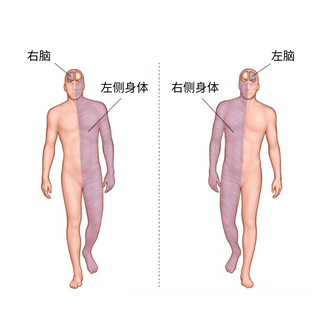Stroke Location Matters: Where it Hits Determines After-Effects
- acupuncture herbs
- Jun 6, 2025
- 4 min read
Written by: Melody, TCM Practitioner.

The specific after-effects a person experiences after a stroke largely depend on which part of the brain is affected.

The Brain: Like a Grand Factory
Imagine your brain as a large factory, with different departments responsible for producing different "products" or functions.
🧠 Frontal Lobe (额叶):
The "General Manager" Responsible for thinking, speaking, voluntary movement, and our emotions. If the "frontal lobe" department has issues, a person might become forgetful, have difficulty speaking, experience uncoordinated movements, or even have personality changes.
🧠 Parietal Lobe (顶叶):
Handles Sensation Responsible for processing bodily sensations like temperature, pain, and touch. If the "parietal lobe" has problems, a person might not feel hot or cold, or may struggle with how to use objects when holding them.
🧠 Temporal Lobe (颞叶):
Deals with Hearing and Memory Primarily responsible for auditory processing and memory. If the "temporal lobe" has issues, a person might have difficulty hearing sounds clearly or remembering things.
🧠 Occipital Lobe (枕叶):
Our "Eyes" Equivalent to our "eyes," responsible for processing visual information. If the "occipital lobe" has problems, a person might have blurry vision or even blindness.
🧠 Cerebellum (小脑):
Our "Balance Regulator" Like our "balancer," responsible for body coordination and balance. If the "cerebellum" has problems, a person will have unsteady gait and be prone to falling.
Stroke: Like a Power Outage ⚡️🪫
A stroke occurs when there's a problem with the blood vessels supplying the brain, causing a certain area of the brain to "lose power." Whichever area "loses power" will affect its corresponding function.
If the left side of the brain is affected, it generally impacts the right side of the body.
If the right side of the brain is affected, it generally impacts the left side of the body.
Examples:
👉🏻 Stroke in the left frontal lobe:
The patient might experience paralysis on the right side of the body, difficulty speaking, and become irritable and easily angered.
👉🏻 Stroke in the right occipital lobe:
The patient might experience left visual field deficits, meaning they cannot see objects on their left side.
👉🏻 Cerebellar stroke:
The patient might have an unsteady gait, be prone to falling, and exhibit uncoordinated movements.
Q: Why Do Strokes Occur? 🤔🤔

The main reason is a problem with the blood vessels supplying the brain.
🩸Blocked Blood Vessels (血管堵塞了):
Like a clogged water pipe, blood flow is impeded, and the brain doesn't receive enough blood, leading to oxygen deprivation. This is known as an ischemic stroke.
🩸Ruptured Blood Vessels (血管破了):
Like a burst water pipe, there's bleeding, which puts pressure on the brain. This is known as a hemorrhagic stroke.
Q: Are There Warning Signs Before a Stroke?

Some stroke patients may experience warning signs before an attack, such as:
🔹Numbness or weakness on one side of the face.
🔹Numbness or weakness in one limb.
🔹Slurred speech or sudden inability to speak.
🔹Blurred vision or sudden blindness.
🔹Dizziness or loss of balance.
🔹Severe headache.
It's important to note that these warning signs are often brief and easily overlooked.
Q: Can a Stroke Recur?
Yes, there is a risk of another stroke after the first one, medically known as a "recurrent stroke."
Why Do Strokes Recur?
🔺 Uncontrolled Risk Factors (危险因素未控制):
If risk factors like high blood pressure, high blood sugar, and high blood lipids are not effectively controlled, the risk of another stroke significantly increases.
🔺 Existing Vascular Disease (血管病变):
Having had one stroke indicates that there are already underlying vascular problems, making it easier for vessels to become blocked or rupture again.
🔺 Atrial Fibrillation (心房颤动):
Atrial fibrillation is a major cause of blood clot formation, increasing stroke risk.
🔺 Unhealthy Lifestyle (生活方式不健康):
Smoking, alcohol consumption, an unhealthy diet, and lack of exercise all increase the risk of stroke recurrence.
Dangers of Stroke Recurrence:
‼️ Increased Disability (加重残疾):
Another stroke can worsen existing symptoms or lead to new functional impairments.
‼️ Increased Mortality Risk (增加死亡风险):
Repeated strokes significantly increase the risk of death.
Q: How Can I Prevent a Stroke?
🪴 Control Blood Pressure:
High blood pressure is the most significant risk factor for stroke.
🪴 Control Blood Sugar:
Diabetic patients are more prone to strokes.
🪴 Control Blood Lipids:
High blood lipids increase the risk of arterial hardening.
🪴 Quit Smoking and Limit Alcohol:
Quitting smoking and limiting alcohol consumption can reduce stroke risk.
🪴 Healthy Diet:
Eat more fruits and vegetables, and less high-salt, high-fat foods.
🪴 Moderate Exercise:
Regular exercise helps lower blood pressure, blood sugar, and blood lipids.
🪴 Regular Check-ups:
Detect and control risk factors early.
In Conclusion
While stroke after-effects can be very challenging, through active treatment and rehabilitation, many patients can regain a certain level of independent living. Therefore, stroke patients and their families should never give up hope and should actively cooperate with their doctor's treatment.
If you'd like to learn more about TCM wellness, or if you'd like more personalized advice for your specific situation, we recommend booking a consultation.



















